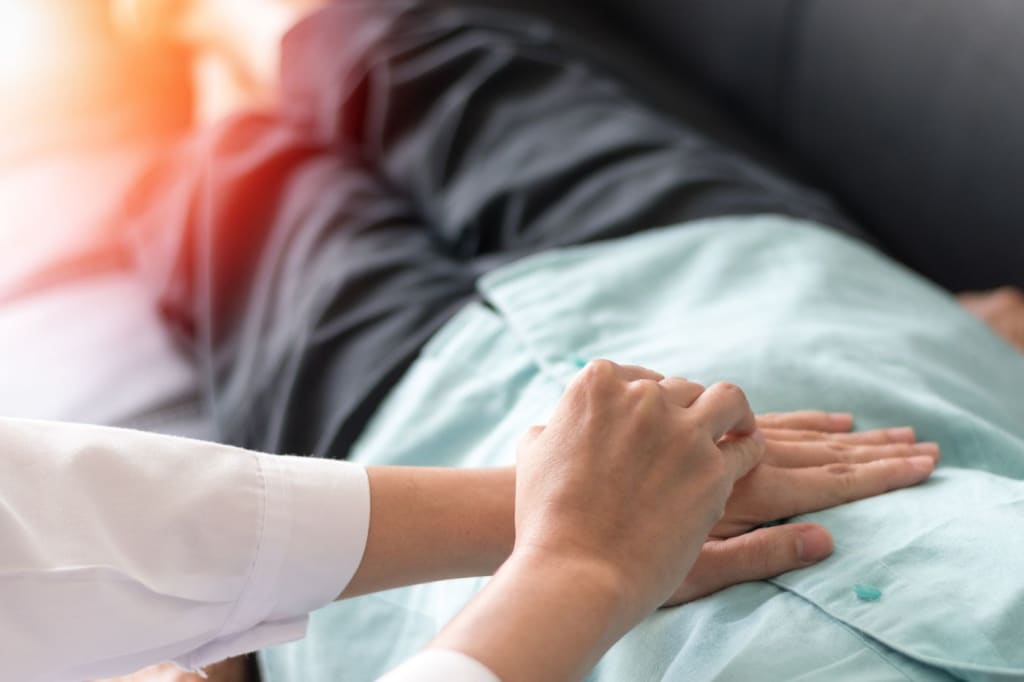Causes, Symptoms, And Complications Of Gallstones
Formation of Gallstones

The gallbladder is a small pear-shaped organ that is located on the right side of your abdomen. It holds bile, a digestive fluid that helps in digestion and breaking down the fats into fatty acids. If bile becomes hard and gets deposited in the gallbladder, gallstones are formed. You can suffer from multiple gallstones that are different in size ranging from as small as a grain of sand to as large as a golf ball. A few of the individuals may develop only a single gallstone, and others may develop several gallstones at the same time.
Below we have mentioned the causes, symptoms, complications, risks, and treatment options of gallstones.
Causes for gallstones:
Around the world, several researchers have conducted multiple studies and found that there is no exact cause for the formation of gallstones. But, they mentioned a few causes which can result in the formation of gallstones, and they are:
● High levels of cholesterol in bile: Your liver excretes cholesterol as a waste product, and bile contains enough chemicals to dissolve the excreted cholesterol. If the liver starts producing excessive levels of cholesterol that bile cannot dissolve, then the excess cholesterol may form into crystals and eventually turn into stones [gallstones].
● Bile containing too much bilirubin: Your liver destroys the old red blood cells and produces a chemical called bilirubin. In certain conditions like liver cirrhosis, blood disorders, liver damage or injury, and infection to the biliary tract can cause your liver to make excessive amounts of bilirubin. These excess levels of bilirubin form into gallstones which are harder and appear as dark in color.
● Concentrated bile: If your gallbladder doesn’t empty properly or fails to empty, the bile present in the gallbladder can become highly concentrated and lead to the formation of gallstones. So keeping your gallbladder healthy and emptying it properly can help you to keep your overall health in the best possible condition.
Most of the diagnosed gallstones are made up of 80% cholesterol and 20% bilirubin & calcium salts. Gallstones that are made up of cholesterol are yellowish, and those made up of bilirubin look dark in color.
Symptoms of gallstones:
Gallstones themselves do not cause any pain, when gallstones get lodged and block the movement of bile from the gallstones, it causes pain in the abdomen. According to the American College of Gastroenterology, 80% of people have silent gallstones which means that they don’t experience pain or have symptoms. A few of the symptoms of gallstones are:
● Gallbladder pain from time to time when you eat foods that are high in fat, such as fried foods
● Nausea or vomiting
● Your urine may be dark in color
● Stools may be clay-colored
● Severe stomach pain
● Persistent burping
● Chronic diarrhea
● Indigestion
● Sudden and rapidly intensifying pain in the upper right portion of your abdomen
● Back pain between your shoulder blades
● Pain in your right shoulder
If you notice any of the above-mentioned symptoms for more than 4-7 days, contact your doctor immediately and seek surgical intervention.
Complications that are associated with gallstones:
Gallstones without symptoms do not require any medical attention but gallstones that exhibit symptoms should be treated surgically. In cases, gallstones are left untreated, they can lead to cause serious complications, and a few of them are:
● Jaundice [a yellowish tint to your skin or eyes]
● Blockage of the gallbladder
● Pain and fever due to cholecystitis [inflammation of the gallbladder]
● Blockage of the pancreatic duct
● Inflammation of the pancreas [pancreatitis]
● Infection of the bile duct [cholangitis]
● Sepsis can be developed [blood infection]
● A rare chance to develop gallbladder cancer
To avoid the complications of the gallbladder, you should follow the course of the treatment plan as directed by your doctor along with suggested lifestyle modifications and dietary changes.
How are gallstones treated?
If you suffer from symptoms of gallstones, your doctor may recommend undergoing gallbladder removal surgery as it is the best and effective treatment option. Depending on the size and severity of the gallstones, your doctor can suggest either gallbladder removal surgery, drug therapy, or lithotripsy.
● Laparoscopic gallbladder removal surgery:
If your gallstone symptoms are frequent and severe, your doctor will perform either open or laparoscopic gallbladder removal surgery. Most surgeons prefer laparoscopic surgery as it involves fewer cuts or incisions than open surgery, quick recovery for the patient, less risk of infection, and few complications are involved.
During laparoscopic surgery, your surgeon will make a few small incisions or cuts on the abdomen. Through one of the incisions, a laparoscope is inserted to visualize the location of the gallbladder and to check the presence of gallstones. Once the presence of gallstones is confirmed, then the surgeon cuts the gallbladder and removes it with the help of other surgical instruments through the small incisions. After completion of the surgery, incisions made will be closed or stitched by the surgeon.
● Drug therapy/Medication:
If your gallstones are small or tiny, your doctor may suggest using medications like ursodiol which is a naturally-occurring bile acid. Along with medications, a few lifestyle modifications and dietary changes are also recommended. Ursodiol should be taken orally which helps in dissolving the cholesterol stones.
● Lithotripsy:
Lithotripsy is the procedure where sound waves are used from outside the body to break gallstones into small or tiny pieces. These tiny pieces of gallstone can dissolve easily or small enough to pass through the bile duct.
Lifestyle modifications and dietary changes:
● Avoid intake of high-fat, greasy, and fried foods.
● Eat food items that are low in fat content.
● Eat foods that contain fiber as they can help in softening your stools and decreases strain during bowel movements.
● Don’t drink alcohol or caffeinated beverages.
● Avoid eating high-fat dairy products, and very sweet foods.
● Eat several small meals per day. Smaller meals are easier for the body to digest.
● Should drink an adequate amount of water [2-3 liters]
● Rapid weight loss may increase your risk of gallstone formation and other health problems. Hence, it is advised to lose weight slowly and aim to lose no more than two pounds per week.
The bottom line:
Gallstones can be caused due to damage of the liver, excess cholesterol and bilirubin in the bile, and improper emptying of the gallbladder. In case you have gallstones and don't show any symptoms, your doctor can suggest watchful waiting. If you suffer from the symptoms of gallstones like sudden pain in the abdomen region and pain in the right shoulder, surgical intervention can be recommended by your surgeon. If gallstones are left untreated they can lead to jaundice, pancreatitis, cholecystitis, and can also block the gallbladder. Follow all the instructions and take the medications as prescribed by the doctor to reduce the recurrence of gallstones.






Comments
There are no comments for this story
Be the first to respond and start the conversation.